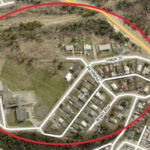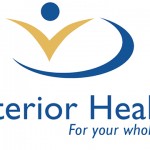Home »
Agreement reached to sustain brain injury services in East Kootenay
A late-in-the-day agreement has been reached between Interior Health (IH) and the East Kootenay Brain Injury Association (EKBIA) that will allow the association to continue providing service to people with acquired brain injuries in the East Kootenay.
“The staff and board of directors of EKBIA are extremely pleased that we were able to work with Interior Health to come to an agreement regarding our contract. We understand the importance and the value of the services that we provide to our communities in the region. We will continue to empower people living with brain injury to improve their quality of life and contribute to the overall health of our communities,” said Dawn Widdifield, EKBIA executive director.
“Interior Health is committed to maintaining services for clients with brain injuries in their communities and our preference was always to continue working with the East Kootenay Brain Injury Association. The association is providing a valuable service to our communities and we are pleased the Association will continue to support clients in the East Kootenay,” said Maryann Simpson, East Kootenay Community Integrated Health Services Administrator for Interior Health in an August 19 media release.
The EKBIA was preparing to close its doors on August 31, something that had some regional people who rely on its services expressing severe concerns, including a Columbia Valley couple.
Kimberley Harris, wife of brain stem stroke survivor Norman Gagatek, contacted e-KNOW August 18 with a letter outlining concerns about the loss of the EKBIA.
“Why are services such as The East Kootenay Brain Injury Association having to even consider closing? Why did it take 18 months of surviving in different medical facilities between B.C. and Alberta – because it certainly wasn’t living – before Norm Gagatek could receive any treatment? Why are services like speech therapy being centralized and IH expect one person to aide clients from Golden to Fernie to Creston and have clients recieve the care they need and deserve? Why is it now one person through the Interior Health Acquired Brain Injury Program who is going to be responsible for this same area? Why is the number one killer and disabler of people under 45 years of age being ignored by all levels of government and health authorities?” Harris asks.
“This lack of support services, therapies, and rehab is not specific to this region. This is a province-wide and national epidemic that needs to be resolved. Former Health Minister Kevin Falcon expressed his concern as to the lack of brain injury rehab in B.C. and stated that the Liberal Government gave $25 million to help that cause. Unfortunately, he failed to let us know that those monies were given out in February of 2008 to Brain Research Centre www.brain.ubc.ca, which concerns itself with research, not rehab, nor support services or therapies. Halvar Jonson Centre for Brain Injury Rehab- https://www.albertahealthservices.ca/services.asp?pid=service&rid=1018102– is the only inpatient, slow-track, long stay rehab in Western Canada. They provide 48 beds, primarily to Alberta residences, with approximately five of those beds reserved for out of province survivors. Those five beds are constantly filled as there are up to 14 0000 brain injuries every year- https://www.bcbraininjuryassociation.com/acquired.php– in B.C. alone, ranging from mild concussions to severe brain trauma, Harris said.
A day after e-KNOW forwarded Harris’ letter to IH, asking for comments on her questions, the IH and EKBIA released a joint statement noting the agreement of continued funding to the Cranbrook-based EKBIA.
However, IH communications director Karl Hardt said the announcement was a matter of timing. “This statement is related to ongoing discussions between Interior Health and the Brain Injury Association and not specific to Mr. Gagatek’s previous situation,” he said.
“The agreement reached will maintain the current contract Interior Health has with the association, while also providing for additional minor service contracts for complex clients that will allow the EKBIA to access additional resources. This process is consistent with other Acquired Brain Injury contracts in Interior Health.
“EKBIA assists people with brain injuries and their families with activities of daily living, social skills, educational and other supports in their homes and in the community.
“Interior Health, along with its contract partners, provides a range of services for individuals with acquired brain injuries, including home support, occupational therapy and recreational therapy, and psychological and counselling services,” the joint release explained.
Harris, who has been battling the system for almost five years, trying to ensure the best possible treatments as possible for Norm, once one of Invermere and areas most tireless volunteers, said the agreement is merely one small battle won.
“I read IH’s response and it was very fitting considering it was a last minute deal yesterday, all because of phone calls, letters, FB posts, etc. from upset clients and furious friends and family members. What they failed to mention is that this ‘begging for funding’ game has been going on for 4.5 years . The association has been ping-ponged between IH and BC Gaming, each claiming the other should be funding the association. This last time IH said no to a $30,000 request from the board to remain open. It was only when the board decided to shut its doors and inform clients, did things get moving. I am sure Maryann Simpson did not expect all the phone calls and emails she received continually over the past few days.
“Once again IH makes a decision about rural communities without consulting and/or trying to work it out. They upset all these clients because of their lack of concern to find out what this program is really about and what it does for the clients in their respective communities. IH and all health authorities in B.C. are about the bottom line, not about patient care or the quality of patient care. I expected nothing less from IH than their ‘politically correct’ response to this matter. Once again they fail to take responsibility for making a mountain out of a mole hill and upsetting those who stress affects the most, the clients and the people who work closely with them.
“One battle over for now, but the war is still on for survivors of brain injuries and I will continue to call every health authority out until brain injuries survivors get what they deserve in the way of health care,” Harris stated.
Ian Cobb/e-KNOW







